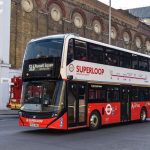One industry delivers £21bn of annual high street spending. It contributes to a reduction in both congestion and pollution while leading the field in low carbon technology adoption.
While doing that, it accounts for a tiny proportion of overall transport spending. It captures around 25% of the population at least once per week; 2.5m people use it to commute daily. One million children rely on it. It’s the bus industry.
But buses are suffering. The government does not take them particularly seriously. Local authorities (LAs) – many of which are having the financial life squeezed from them – have been forced to reduce their support.
Some of those in positions of local power are disturbing the industry, too. With nary a scrap of evidence to support their assertion, they say that a regulated London-style system is a utopia.
Where they are much quieter is on how franchising will cut congestion and journey times. On its own it will not, because it cannot. And rising journey times are the largest contributor to reducing patronage.
Key to franchising’s advocates is that it will lead to lower fares. They will come down to London levels, so it is said.
When the facts are examined, many passengers will find that London’s fares aren’t the cheapest in the land. Individual tickets generally are; that is true. Daily and weekly caps are not. In some cases, both are significantly more costly than in city and metropolitan areas.
The capital’s network also consumes £700m per year more than it generates in revenue.
Is aspiring to a London-style network a fiscally responsible thing to do under the current climate? Perhaps those in the seats of power should be called upon to answer that question – if, indeed, they can.

























